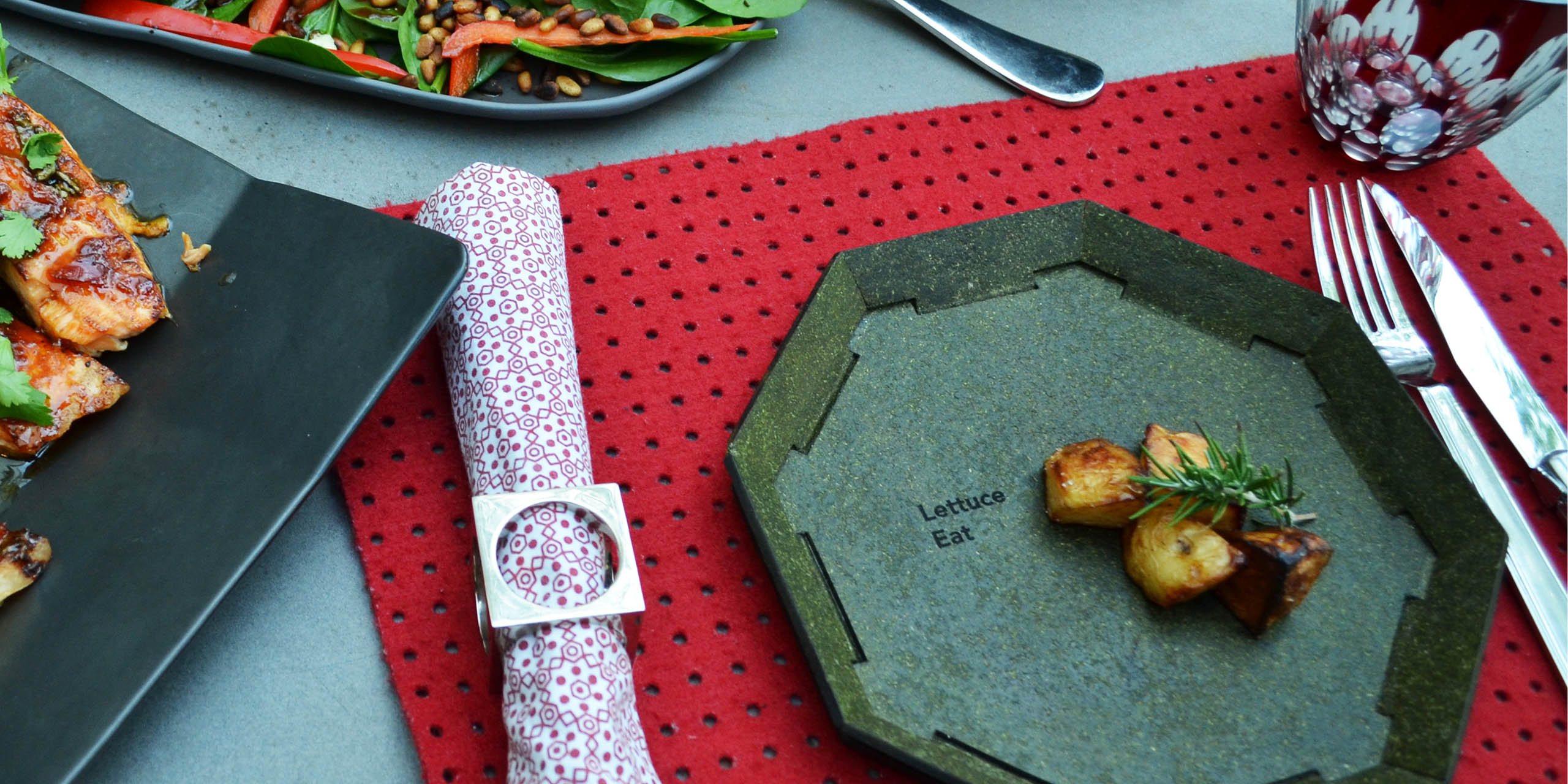41% of food waste within Melbourne is due to the consumer directly (Sheridan, Carey & Candy, 2016) and of these wasters, high income households produce the most food waste (Hamilton, Denniss & Baker, 2005). Therefore, the piece must be a desirable, high-quality material and design to suit this demographic. Through use of the plates, consumers are educated on the materiality of the product, which highlights the value of food waste materials in an attempt to alter perceptions on waste. Installing value within these wasted materials, the project acts as a catalyst to reduce food waste in the first place.
Lettuce Eat explores food waste and throw away culture through a series of plates developed and designed from dehydrated lettuce.
The pieces act not to discourage an impermanent sense of consumption, but rather, encourage consumption of 100 percent sustainable and natural single use objects, while removing the need for plastic alternatives.

